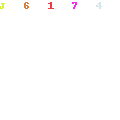
Slavoj Žižek is one of my favorite contemporary philosophers. I cannot recommend his 2008 book Violence strongly enough. It's incredibly well written, so that any reasonably educated person can read it without struggling with arcane references and obscure terms. There is very little Lacan, whcih is great, because we have to admit that Lacan has been dead and buried in any possible sense of the word a long time ago. (For me, the first attribute of a chauvinist is a fascination with Lacan. Thankfully, Žižek seems to be getting over this sad limitation).
The approach Žižek takes to violence is nothing short of brilliant. Trying to analyze violence is always difficult, he argues, since our unavoidable emotional response to it does not allow for a detached rational analysis. This is why he proposes that we "cast ... sideways glances" at it, which will allow us to achieve a "dispassionate conceptual development of the typology of violence." This is exactly what Žižek proceeds to do in his book.
The kind of violence that interests Žižek the most is, of course, that which "pertains to language as such, to its imposition of a certain universe of meaning." With this statement, Žižek brings our attention back to the issues of ideology that for some time have been buried under the proclamations of a "post-ideological" era.
The Slovenian philosopher has no patience with liberal communists and their castrated self-congratulatory agenda: "The delicate liberal communist - frightened, caring, fighting violence - and the blind fundamentalist exploding in rage are two sides of the same coin," says Žižek. "We should have no illusions: liberal communists are the enemy of every progressive struggle today." His critique of these people is strong, direct, and to the point. Žižek tells us that there is no difference whatsoever between the traditional left and the traditional right: "Both the old right, with its ridiculous belief in authority and order and parochial patriotism, and the old left with its capitalized Struggle against Capitalism are today's true conservatives fighting their shadow-theatre struggles and out of touch with the new realities." Nobody could have this better. I have to say that I experienced almost physical pleasure when I read this.
Žižek 's book offers an incredibly profound understanding of the workings of ideology. Those who believe that the debates about ideology have no place in contemporary society should turn to the analysis presented in Violence. According to Žižek: "Verbal violence is not a secondary distortion, but the ultimate resort of every specifically human violence. . . Reality in itself, in its stupid existence, is never intolerable: it is language, its symbolization, which makes it such." There couldn't possibly exist a stronger and more timely vindication of the activities of any philosopher, thinker, and literary critic. Bravo, Žižek!
8 comments:
I experienced physical pleasure when I read Zizek's Violence. It is a book that debunk many ills of Western liberalism. The parallel he makes between the men of Porto Alegre and the men of Davos is illuminating, and so are his analysis of tolerance and Benjamin's "divine violence". Reading your post makes me want to read Zizek's Violence again! Thanks!
Maybe we should start a fetish group around this book. :-)
Remember how he talks about Davos turning into Porto Davos? That was so funny.
Regarding Lacan. The good thing when we read Zizek on Lacan is that he manages to make Lacan almost "understandable," a pretty amazing tour-de-force since the whole point with Lacan is precisely not being understandable.
Davos and Porto Davos provoked a kind of physical and intellectual jouissance in me... not in the Lacanian sense, of course.
What Zizek says about live in this book is also beautiful.
He makes not only Lacan but also Hegel very accessible. And his analysis of movies is always interesting. Which surprises me.
IT DRAGS A LITTLE IN THE MIDDLE THOUGH, WITH ALL THE STUFF ON ENVY WHICH SEEMED TO ME A LITTLE OUTDRAWN.
This part leads to the following impressive statement: "The primary vice of a bad person is precisely that he is more preoccupied with others than with himself."
Post a Comment